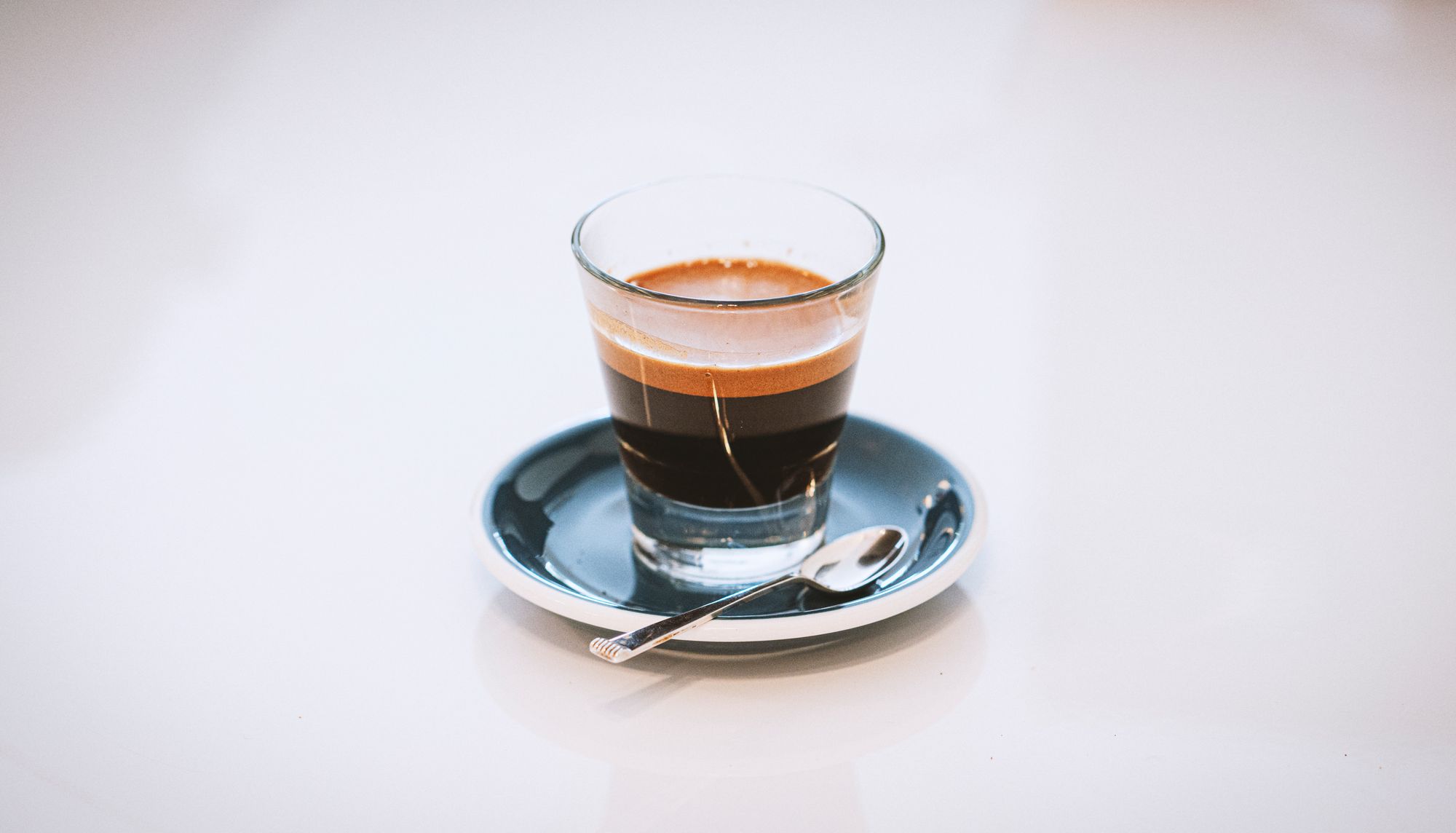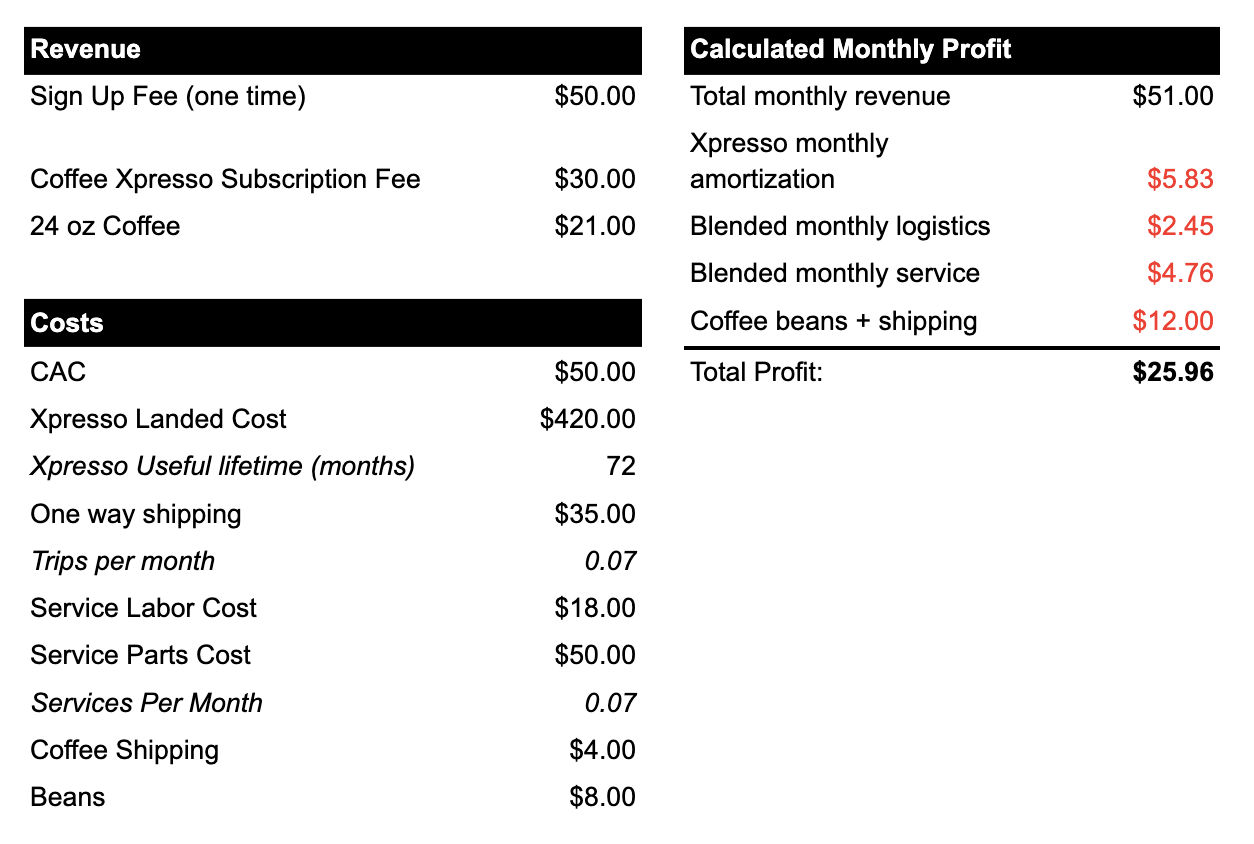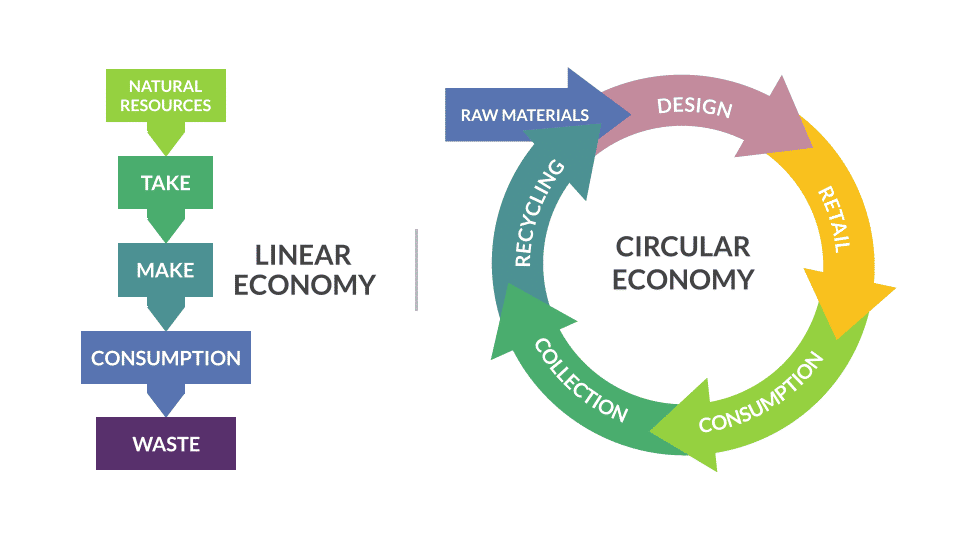CoffeeX
A Hypothetical Hardware-as-a-Sevice Company
Disclaimer
CoffeeX is not a real company—even though they probably should be. Perhaps after reading this someone will start CoffeeX or something similar. I would definitely use them!
The Pitch
CoffeeX is a hardware-as-a-service (HaaS) company—an emerging new category of businesses focused on leasing physical products. It’s like Netflix for your coffeemaker.
You sign up for CoffeeX by paying the first month plus a shipping fee. Three days later, a box arrives at your doorstep. You open the box and there it is: the CoffeeX “Xpresso” machine. You admire its high-quality stainless steel design; you read a personal note welcoming you to the CoffeeX family; and you unpack your first pound of espresso beans along with some accessories you added at checkout. You can already taste it: this first cappuccino is going to be the start of something great.
The Buyer
It’s not like you haven’t tried making more coffee at home. You tried two of the best Nespresso machines out there; yet you remained wanting for more. You wonder if there is a life beyond pods—and after some research, you realize there is—it just costs a lot. Like a thousand dollars a-lot. Yet as you stare into your lurid shot of “Hazelino Muffin,” digesting this information, you decide you’ll be damned if you ever drink another biscotti-infused pull in your life. You browse Google one last time and discover—by the grace of the coffee gods—“CoffeeX.” Get your own professional espresso machine for just $30 per month! Curated bean selection available! Cancel anytime!
So you sign up. In a week, you’re pulling high-quality espresso shots. And after a month, your friends stop making fun of your latte art. Each week, CoffeeX sends you a sample of new coffees to try and 8 ounces of your favorite. You still go out for coffee on the weekends, but now 9 out of 10 ten cups are being made at home. Your coffee expenditure has been cut in half.

So far, CoffeeX has been a fun and rewarding experience; but nine months in, your espresso machine stops getting up to pressure. No worries. CoffeeX sends you a replacement while you ship the broken one back—and they include an extra 8 ounces of coffee for the inconvenience. Three years later, you’re still a happy, loyal customer.
The Business
We’ve seen why customers are hooked on their CoffeeX subscriptions; now let’s look at the business fundamentals.
Because CoffeeX owns its espresso makers and leases them out to customers, the machine is considered an asset—not inventory. Financially speaking, this means CoffeeX owns the machine for its entire life, taking depreciation each month until its value on paper reaches zero.
There are several other costs CoffeeX incurs. Every time a machine breaks or a customer cancels, the business needs to ship the machine back. Each machine will accrue several shipping events over its lifetime. Additionally the machine must be inspected and serviced. These costs take the form of both labor and parts.
But CoffeeX isn’t worried. They have built a high-quality machine that can easily be serviced. They run all their operations (ie. shipping & receiving, maintenance & repair) under the same roof. This allows them to keep their operating costs under control.

There are some additional, unique benefits for CoffeeX:
Lower Cost of Acquisition (CAC)
At this low price point, it’s easy to get customers to try out the service. CoffeeX spends much less time marketing than their direct-sales competitors.
Add-ons
If you’re selling a coffee brewing machine, it’s obvious to include the coffee as well—no proprietary pods required. The coffee beans are part of the service and provide strong margins that bolster the customer lifetime value.
Recurring Revenue
Initially, cash flow will be negative due to hardware capex and startup costs; but the power of recurring revenue starts to pay dividends a couple of years in. Coffee X is able to run a predictable, high-margin business that still maintains very high customer satisfaction.
Earth’s Story
Something very cool happens when companies lease products instead of selling them—the products last longer. Normally, it’s in a company’s best interest for the consumer to buy their new products as much as possible. While this has been good for capital efficiency (with products tending to get cheaper over time), it also means that their useful lives are often short. They get manufactured and used for a little bit before they break or get thrown out.
With leasing, however, the amount of time that product can be leased for becomes an earnings multiplier. If I can build something that lasts four years instead of two years, my capital expense will be cut in half. That’s a lot more potential for profit. I will be incentivized to build higher quality, longer-lasting and more serviceable products.
As one might imagine, this is a very good thing in ecological terms. Less production means less energy and less raw materials. CoffeeX’s Xpresso machine does not end up in a landfill after a couple years. Rather, it gets serviced and goes to another happy customer for the better part of a decade.
The product’s end-of-life plan is important too. When each machine has been fully depreciated, CoffeeX breaks down each unit into its constituent parts to reuse and recycle what’s left. Those few dollars of materials would be almost worthless to the consumer—but with the economies of scale CoffeeX enjoys, they are incentivized to extract value even at this stage. CoffeeX has unlocked the circular economy paradigm.

Next Steps
CoffeeX provided a 10,000-foot view into the moving parts of a HaaS company. In later essays, we will explore both the benefits and challenges of this business model in greater depth.